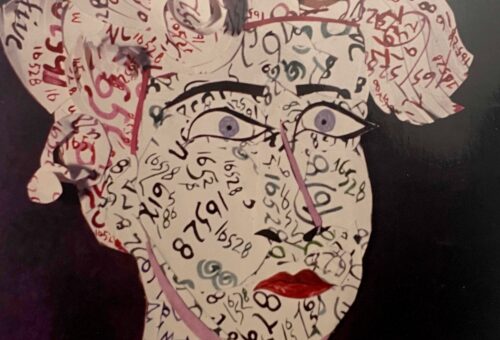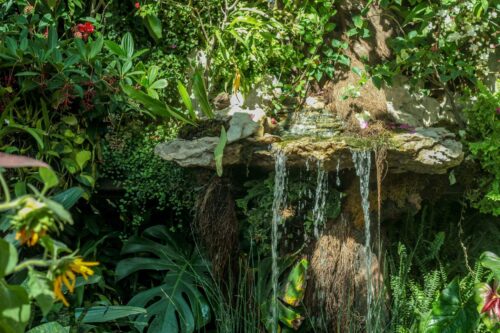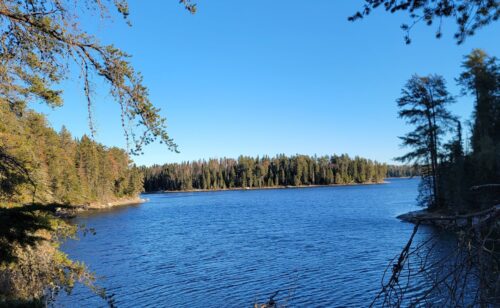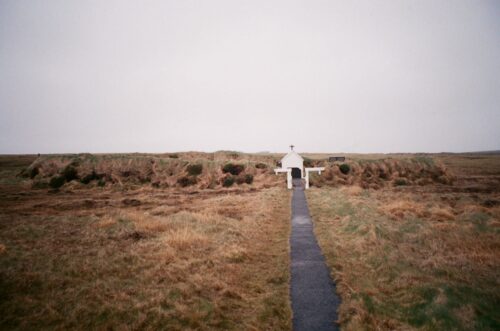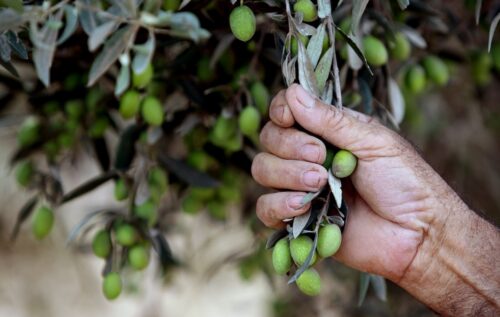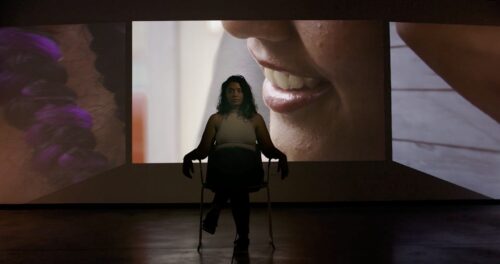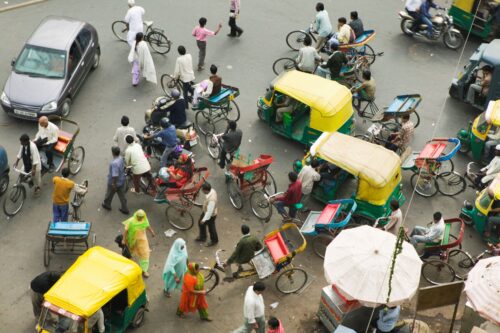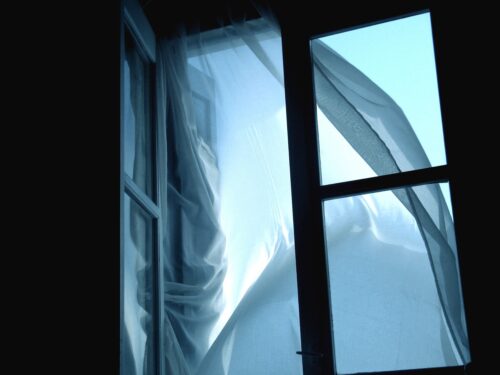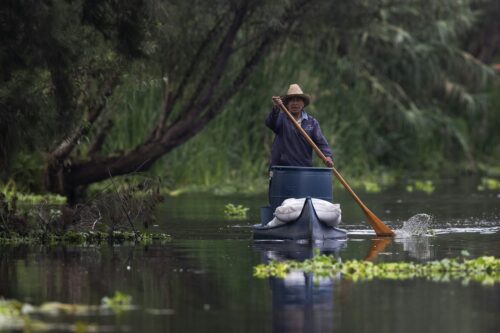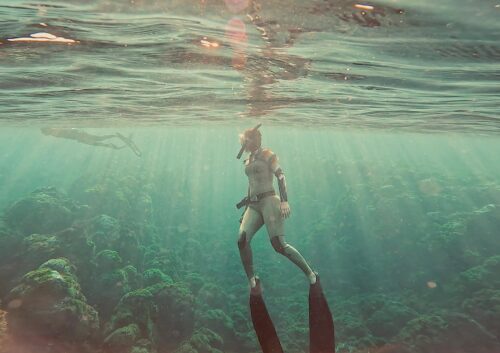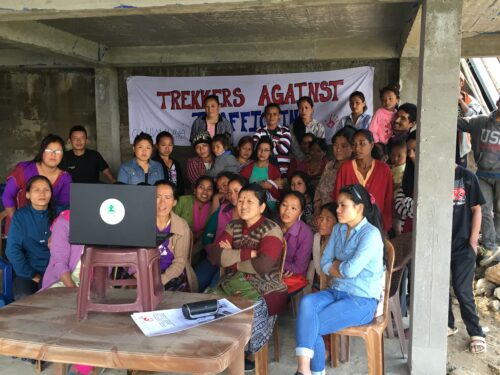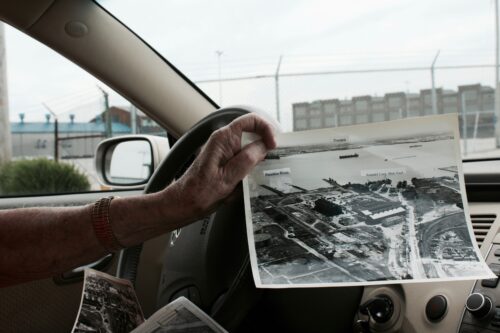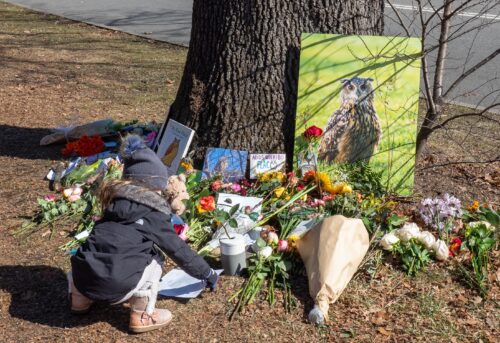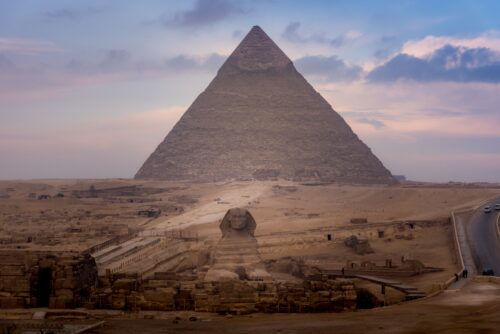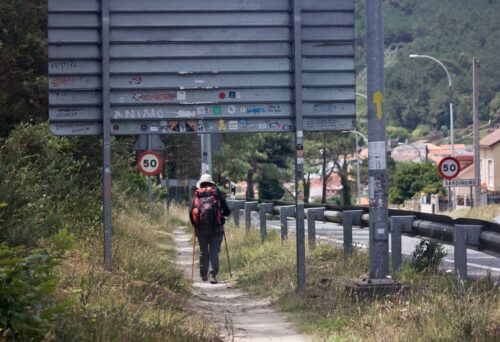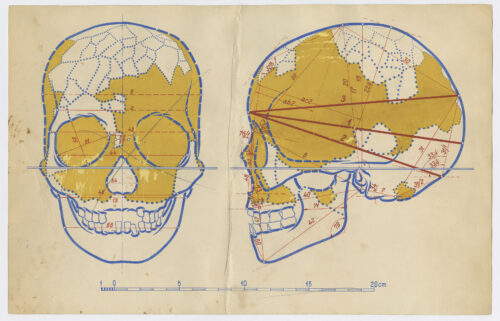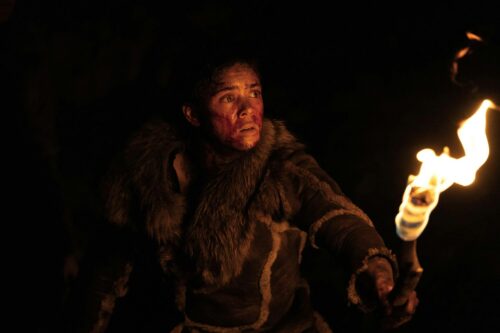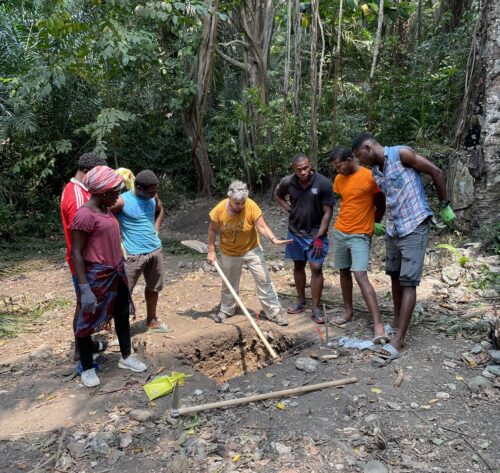Elder
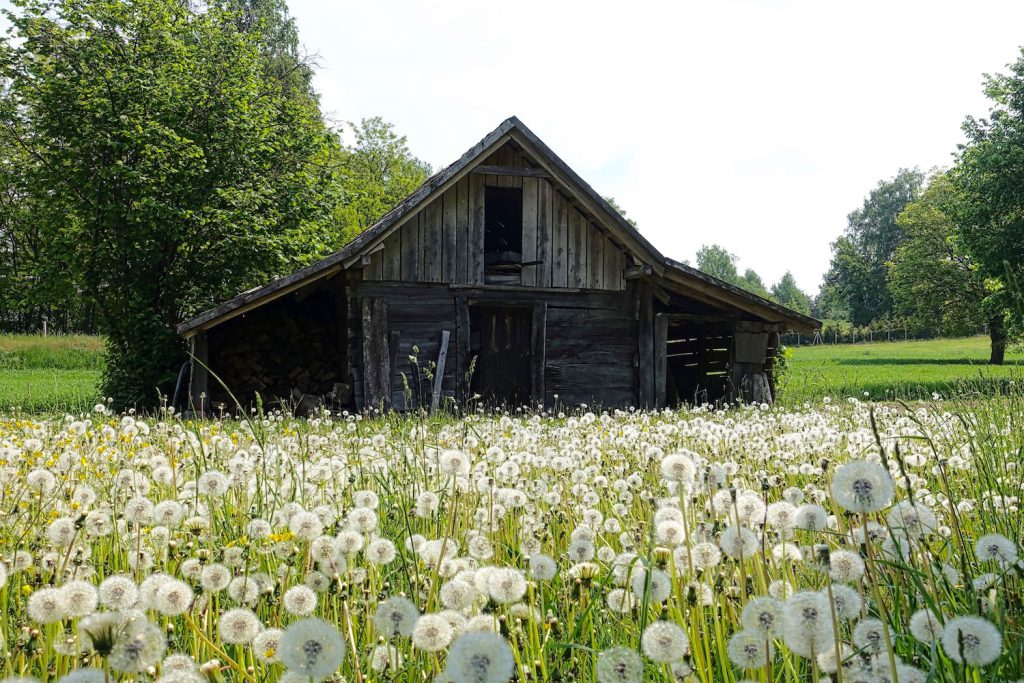
“Elder” is part of the collection Lead Me to Life: Voices of the African Diaspora. Read the introduction to the collection here.
We don’t talk about the South much,
and it’s a shame that my only knowledge
of elders are names and dates, maybe place—
but not the lives lived in a space so blended
and close knit, like small-town buying peaches
on market day, blue skies fit for watermelon
and dandelion with nights so black, so lit with stars
that one could imagine that it’s dark everywhere.
And it was when we left the city,
save the streetlights that became strangers
in their curved necks and bright faces
that also became scarce as we rode down the highway,
its great green fields with bales of hay on either side.
I missed home, my momma, the bomb-pop man
and the orange tang of sherbet while looking out over the vastness
at houses, so far in the distance that they were tiny domes,
small top hats on disappearing heads.
We were awakened in the back seat of the LeBaron
by Grandpy having lit his cigarette, its menthol wafting on the wind
and the heat of the day still found us on our way down.
It was so hot that the fumes seemed to rise off the street in little waves
or invisible snakes that disappeared when we got up
on ’em, my fear only foreshadowed by the unknown.
Grammie tried to soothe our mood,
“We almost there,” handing us pieces of fruit.
But I was afraid of “the South,” heard it was a back/water
and not even knowing what that even meant,
it was as if the only good water flowed from the
front, where you could see it, where it didn’t sneak up
on you and bite.
Our city lives were easy like not having to fetch water,
eating food already grown. But we had a ball in the fields in Marianna
so far from home. We played like we
were on Mars, its red clay the days so long and dry—
stinkin’ of manure, chicken parts, pigs, and all the
life just walkin’ ’round the family farm.
We played with frogs, lost ourselves in fields so old,
that they appeared to be a person, someone we both knew,
individually, too, as if I knew just where the pond would be,
and Jaron could tell you with certainty how many rows
of corn were in the field, or how the grass was a great mattress
full of comfort we somehow missed, as we laid there
lullabied by the strum and the hiss of cicadas, the buzzing
of little things we didn’t have names for, and yet
we knew they meant us no harm, only songs,
only whispers of a past that never really left.
